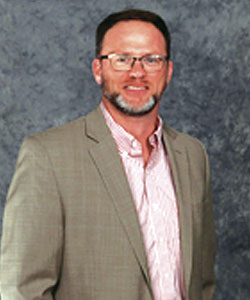Specifically Speaking with Drew Deatherage Vice president and co-founder of Crux Technology & Security Solutions in Fort Worth, Texas

By Paul Ragusa
Updated Wed May 31, 2017
 What is your role at the company?
What is your role at the company?
My role is all things business development. We are small, so in addition to being a principal and managing client relationships, I manage sales, marketing (with outside help), and building strategic business relationships.
What kinds of systems do you design/specify and what services does the company provide?
We provide consulting, design, and project management services to architects, engineers, property management firms and facility owners. Our areas of expertise are in safety and physical security; network premise distribution; and audio-visual systems. We specialize in commercial markets, education (K-12 and higher education), and Native American projects.
How did you get started in security and designing/specifying?
Believe it or not I was laid off from a software development job in the aftermath of 9/11. I went to work for a fire alarm contractor that asked me to help start up a security integration business in 2002 and found my passion in security. The rest as they say is history.
Can you talk about what new or emerging technologies you are seeing or specifying today?
Some observations:
· Passive optical networks solve many problems today and handle physical security needs well.
· Video and audio analytics are now mature enough and cheap enough to move downstream into the middle markets.
· Virtualization: If your software will not run well in a virtualized environment, then your days are numbered.
· Mobile device-based and wearable ACS credentials are arguably more secure (assuming your mobile device requires a password) and usually far more convenient. I expect to see steady growth here as consumers learn more about the options and availability of these solutions.
· A terrific selection of integrated door hardware solutions from Assa Abloy and Allegion that are beginning to drive costs down compared to traditional access control solutions. This allows for a broader deployment of electronic access control and a more elegant implementation.
· End users want truly integrated solutions today preferably from the same vendor. ACS and VMS under one umbrella.
· PSIM is DEAD! Cheaper and more practical alternatives are emerging like S2 Magic Monitor and Mercury boards that can speak BACnet, just to name a couple.
· The cloud is robust, secure, and here to stay and it enables Security-as-a-Service to grow at a frenzied pace and will keep costs in check. VMS and ACS manufacturers need to have a solid and thoughtful strategy in order to provide customers with options that fit their budget and risk profile.
· “Security of security” is overtaking the conversation in many cases—cybersecurity, encryption, data protection, privacy.
· The end user experience is taking front stage—those products that are easy to use across multiple platforms (including mobile), play well with others (open standards), and are well supported will dominate the marketplace.
What is your view on the industry moving forward?
The security consultant/design professional enjoys more acceptance as a key player on project design teams than ever before. That said, I think many owners, architects, and engineers still think they can DIY with help of manufacturers and integrators and often get subpar results. They don't often know there are better options. We need better marketing at the national level (hey ASIS and SIA) to promote the benefits of using security consultants to assess, consult, design, and manage complex security projects.
We will continue to see consolidation of companies by acquisition and the flood of off-shore cameras continues to put pressure on the traditional big four—Sony, Axis, Panasonic and Bosch.
On the regulatory front, the threat of terrorism (cyber and physical) and violence in general will continue to drive regulatory and non-regulatory changes to our industry across the globe. We are needed more now than ever.
And in regard to continued innovation, it is up to us to continue to find new ways to solve problems. This industry has created whole new categories of products that are used in the fight against the ancient problems of crime and terror. I think the next frontier is going to rely on developing open standards that allow us to consolidate devices, drive costs down, and push more of the required computing power into the cloud.
Comments